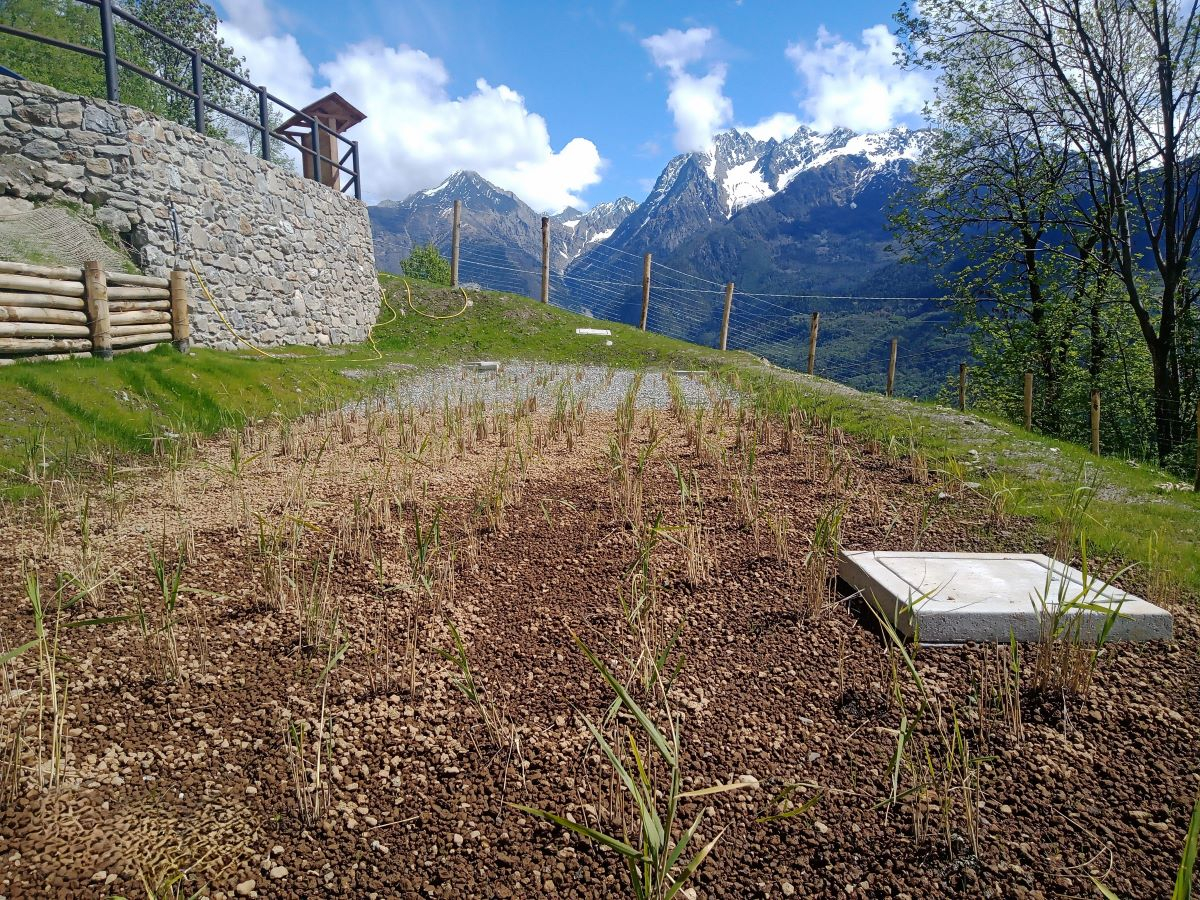Even in the mountains, where we naturally associate water with purity, the most pressing issues that water service managers need to solve concern untreated wastewater, the lack of sewerage systems, or the modernisation of existing treatment plants. In the latter case, it is desirable to implement nature-based solutions. In this issue, Renewable Matter will take you to an altitude of 1,000 metres above sea level to explore the new phytoremediation facility constructed by Acque Bresciane in Malonno, a village nestled in the upper Camonica Valley, in the heart of the Bergamasque Alps.
Acque Bresciane, the company entrusted with the integrated water management system in the Province of Brescia until 2045, is experiencing rapid expansion. Operational since April 2017 in 55 municipalities, the utility now has an ambitious target: to manage all 205 municipalities in the province, guaranteeing efficiency and water system innovation without, however, leaving internal and rural areas behind.
The benefits of phytoremediation
Phytoremediation harnesses the natural self-depurative ability of wet environments to transform domestic and agri-industrial wastewater into clean resources. This process takes place thanks to the collaboration between bacteria, plants, and the soil, which work together to filter and degrade the organic compounds in wastewater, transforming them into bioavailable nutrients for the plants in the system. However, to maximise the effectiveness of phytoremediation, wastewater must undergo primary treatments before entering the system, thus guaranteeing optimal pre-processing that prepares the water for the subsequent natural intervention.
“This method has many benefits, from good treatment yields to limited energy consumption, from simple management to greater landscape and environmental integration via the active involvement of ecosystems and their functions. Acque Bresciane is firmly committed to a path of redevelopment and creation of new facilities through nature-based solutions that are perfectly integrated into existing contexts,” explains Sabrina Colli, Manager of the Unified Design Area for the Brescia-based utility.
Wastewater treatment in Malonno is now nature-based
The new phytoremediation plant in Malonno, created by Acque Bresciane, has the capacity for 100 inhabitants’ equivalent. The project was born out of the need to restore a wastewater treatment plant that was degraded and difficult to maintain, with the additional goal of making it compliant with Regione Lombardia’s Regional Regulation n.6/2019, which bans the sole use of Imhoff tanks for wastewater treatment.
“The new treatment plant – Colli adds − involves a primary treatment comprising the screening and overflow of excess rainwater and two circular Imhoff tanks set up in parallel, followed by a secondary treatment of horizontal subsurface flow phytoremediation, laid out across two parallel beds with different fills (one bed is filled with gravel in the first section and zeolite in the second, the other with gravel followed by bauxite) and planted with common reed (Phragmites australis).” For the plant in Malonno, all the concrete structures are fully below ground. Above-ground works, such as retaining walls, piling, fencing, and phytoremediation beds, were designed and created using materials for optimal integration in the mountain landscape.
Sustainability and collaboration
During the planning phase, Acque Bresciane collaborated with UNIMONT (Mountain University, a branch of the University of Milan based in Edolo, upper Val Camonica), integrating experimental and sustainable technical solutions into the project. These included the use of innovative materials to improve the treatment performance of the phytoremediation beds and the installation of filter cages with bulky and light materials. These cages, which are easily removed, increase the efficiency of cleaning operations and reduce the risk of blockage, constituting a cutting-edge approach to sustainable wastewater management.
“The project − says Francesco Esposto, Sustainability and Innovation Manager at Acque Bresciane − arises from the sustainability that the company has built into its design thanks to positive synergy between various subjects: utilities, researchers, engineering and design companies, and local authorities. Nature-based solutions are currently one of the main design drivers for Acque Bresciane, especially for small settlements, and they are part of a strategic plan linked to the protection of biodiversity and ecosystem, services.”
This article is also available in Italian / Questo articolo è disponibile anche in italiano
Images: Acque Bresciane



